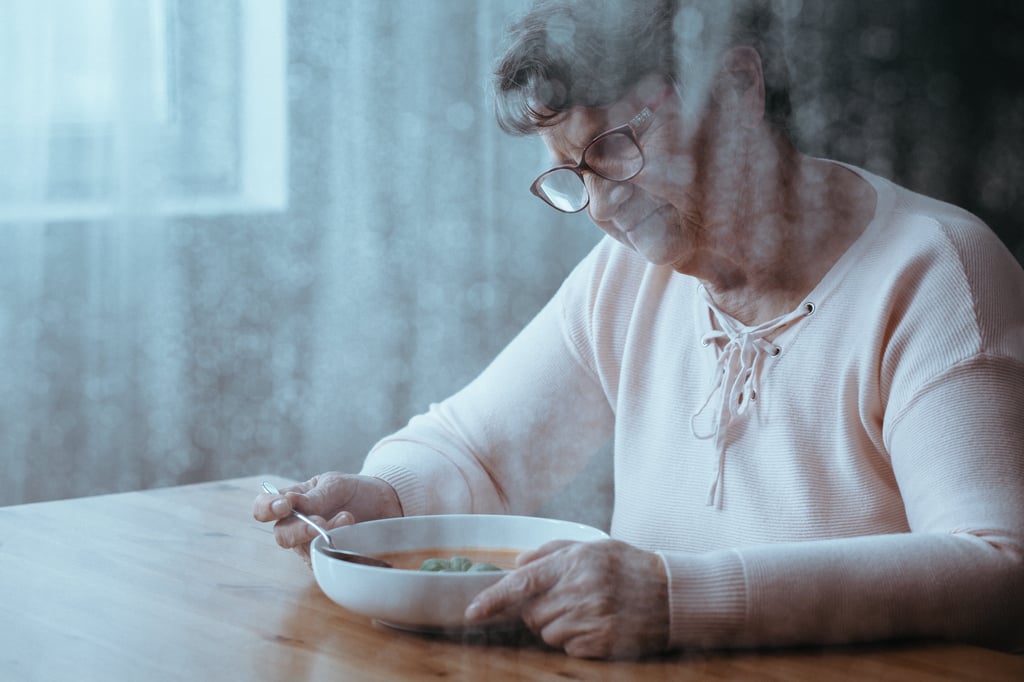 Everyone knows that what we eat matters for our health. But, people tend to ignore the connection, especially in elderly adults, between healthy outcomes and who we eat with.
Everyone knows that what we eat matters for our health. But, people tend to ignore the connection, especially in elderly adults, between healthy outcomes and who we eat with.
Eating is a social exercise, and eating alone can have serious repercussions on your health. Seniors are more likely to live alone and to be socially isolated, which means social dining must be sought out.
The risks in dining alone, both physical and emotional, make finding a community to dine with an important part of a healthy lifestyle for elderly adults.
Why People Dine Alone
The 2010 U.S. Census Bureau found that more than 28 percent of the household population aged 65 and over lived alone. Because of their longer average lifespan, women were nearly twice as likely to live alone than men.
Seniors who live alone are at greater risk of isolating themselves socially, especially if they don’t have access to transportation. Despite the rising percentage of adults over age 70 who still have their licenses, more than 20 percent of them do not own their own vehicle. With poor public transportation, it still leaves millions of older Americans with no other traditional transportation options.
There are many other reasons elderly adults might isolate themselves and dine alone, including:
- Children moved away
- Lost a network of friends
- Fear of being a burden on outings with their loved ones
- Afraid of falling if they leave the house
- Difficulty communicating with others (often because of hearing problems) or they have a stigmatizing disease such as dementia.
The Dangers of Eating Alone
Studies have shown that eating alone is associated with a host of unhealthy traits, including loneliness, social isolation, unhealthy food choices, and inadequate fruit and vegetable consumption. That’s why it’s so important to ensure your loved one isn’t eating alone.
Sharing a meal together builds trust and cooperation. It brings people together, makes them close. When your loved one is isolated and dining alone, they’re neglecting the social network that eating together can build and maintain.
When your loved ones eat and socialize with others, they are able to handle and manage their emotions and stress better. A lack of social interaction can sap people’s motivation and desire to set goals, including goals for healthy eating. They are more likely to eat whatever is easiest rather than what is healthiest. For lonely people, it all adds up to a greater risk for chronic disease and premature death.
Solutions for Making Mealtime Social Again
The key to making meals social again is to break the pattern of social isolation. There are a number of ways you can help your willing elderly loved one reconnect with the world again.
- Visit as much as your schedule allows. If you can’t stay long, stay often.
- Plug them in to local services, such as the community senior center, adult daycare or “Village,” a network of nonprofit agencies that coordinate access to affordable senior services.
- Buy them a bus pass. Access to transportation is one of the most effective ways to prevent social isolation.
- Find a bingo night. Group activities, especially ones with an educational or social purpose, have been proven effective at reducing social isolation.
- Start a family night. Getting the relatives together might be difficult, but inviting everyone over for a game night, puzzle night or to make greeting cards for charities can be an effective rallying tool.
Commit to Action
Knowing the dangers of eating alone that leads to loneliness and isolation, it’s important to commit to intervening on behalf of a loved one who is suffering from either of these risk factors. It might be time to have a conversation about moving your loved one into an assisted living community with social programs and group dining. Whatever you decide, commit to helping your loved one experience the joy of eating with others and getting the proper nutrition that they need to live a healthy lifestyle.







